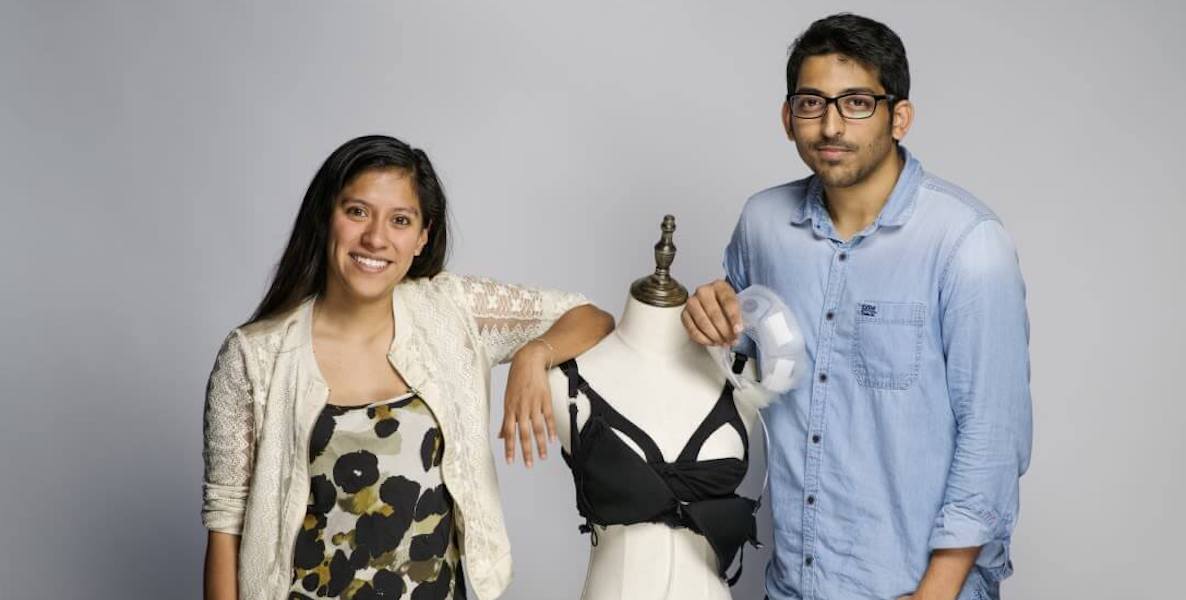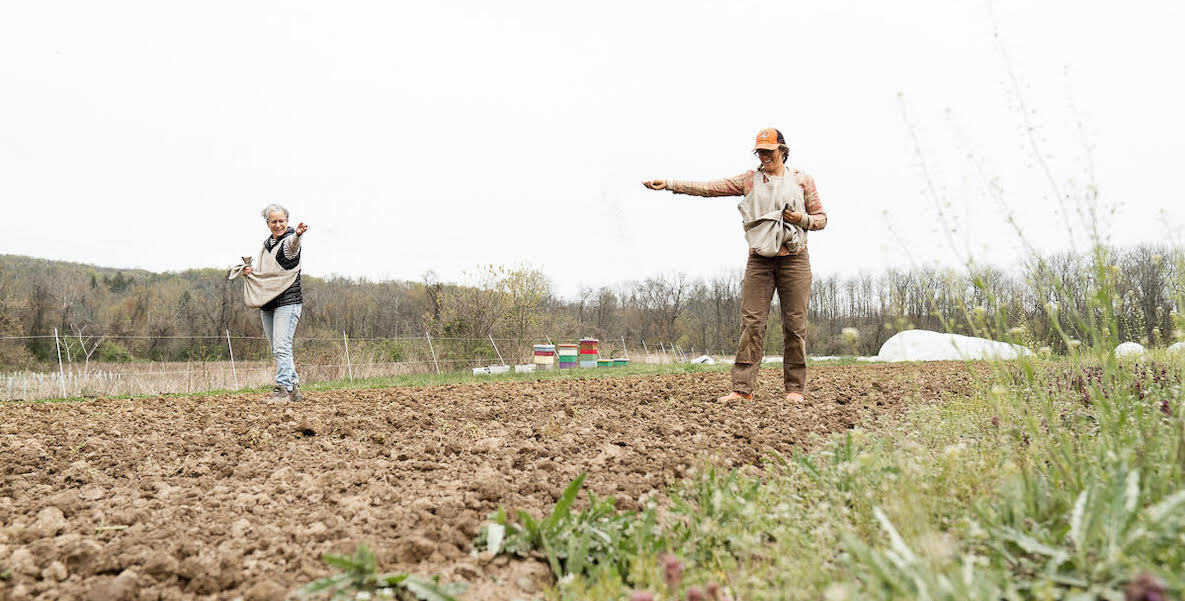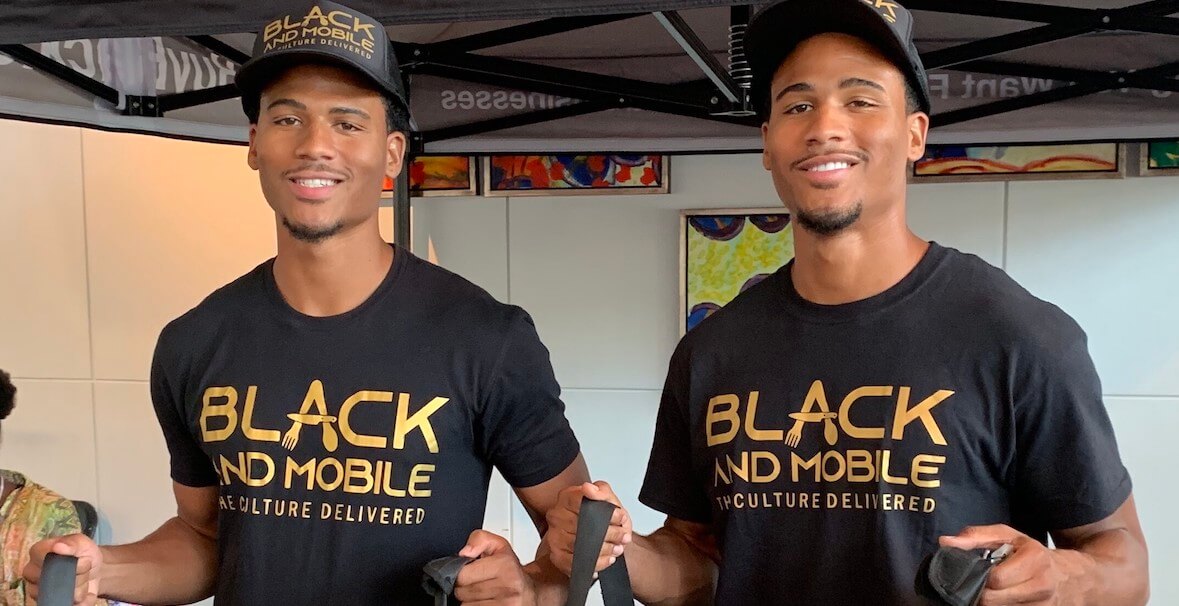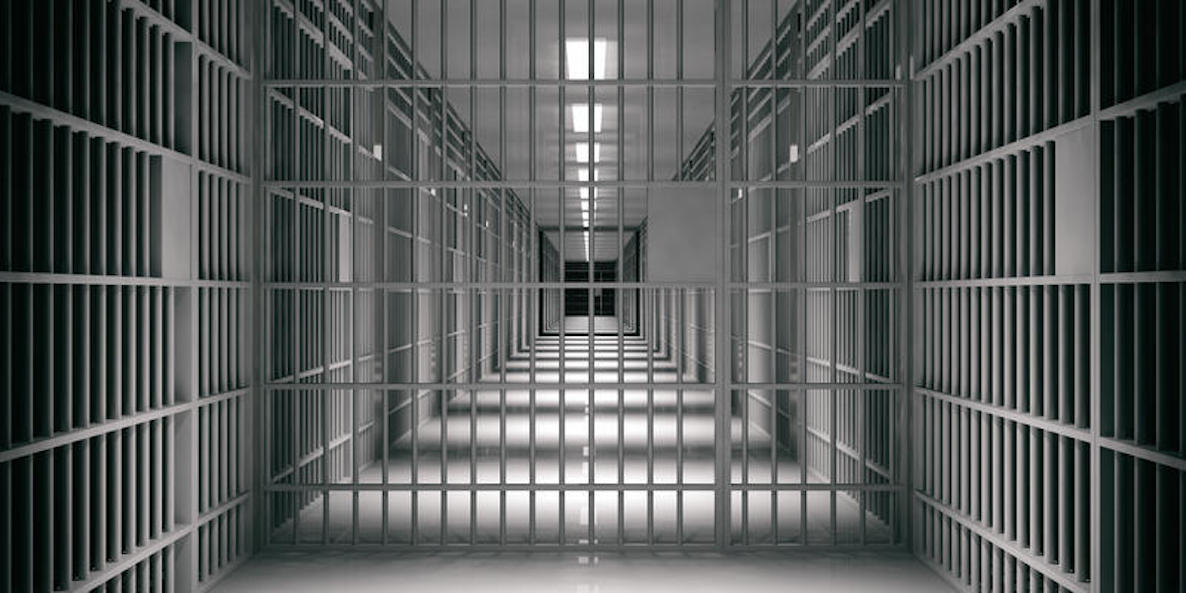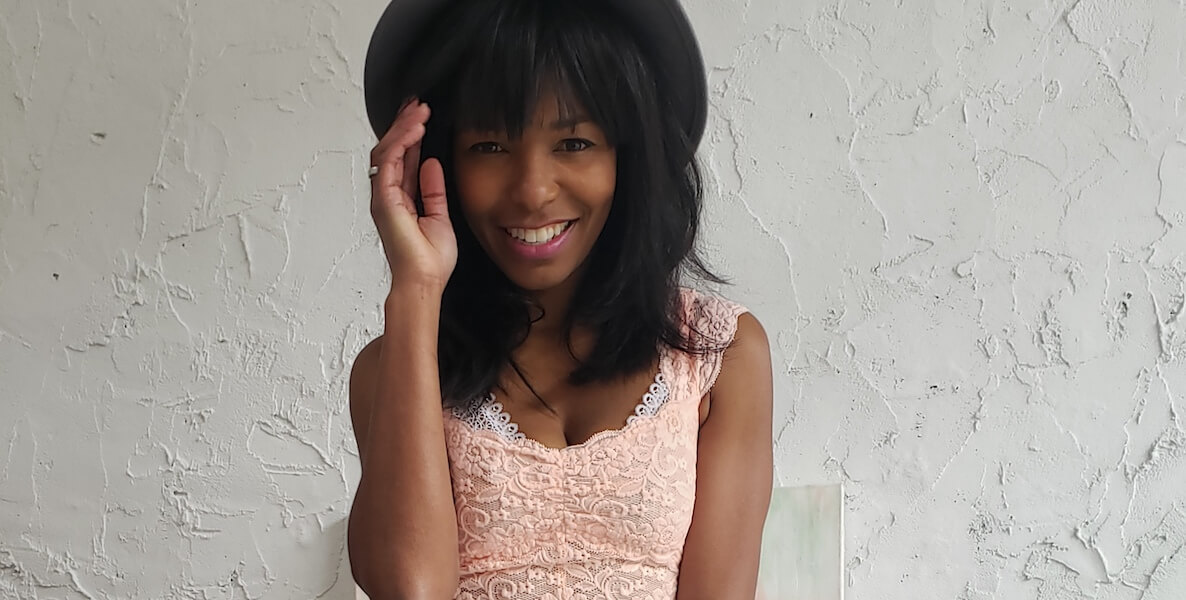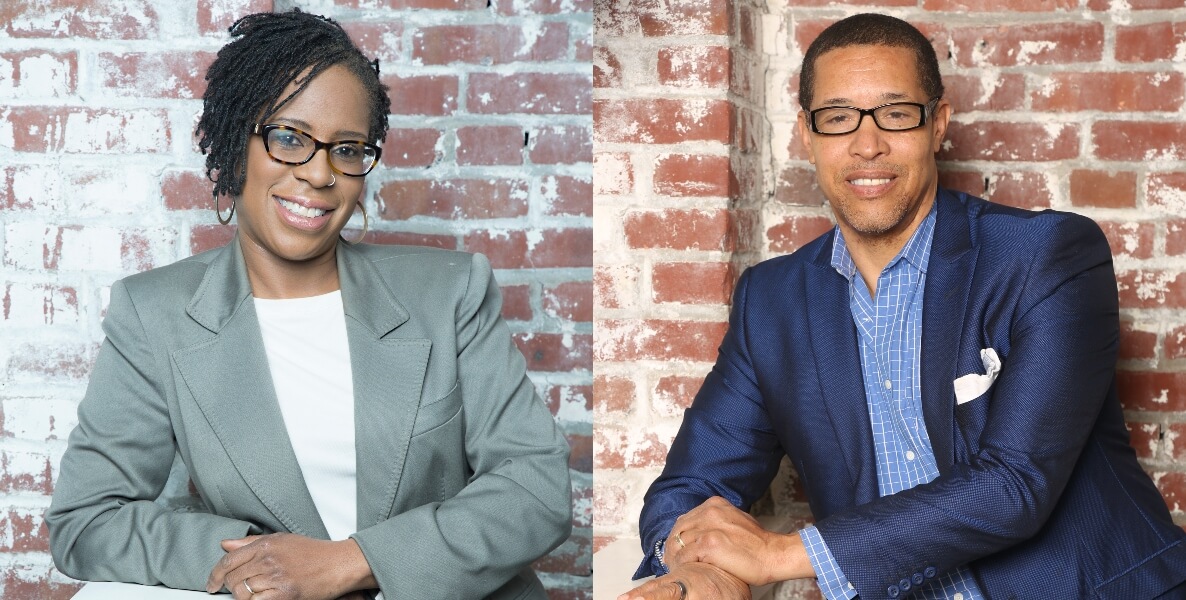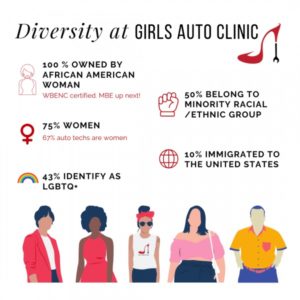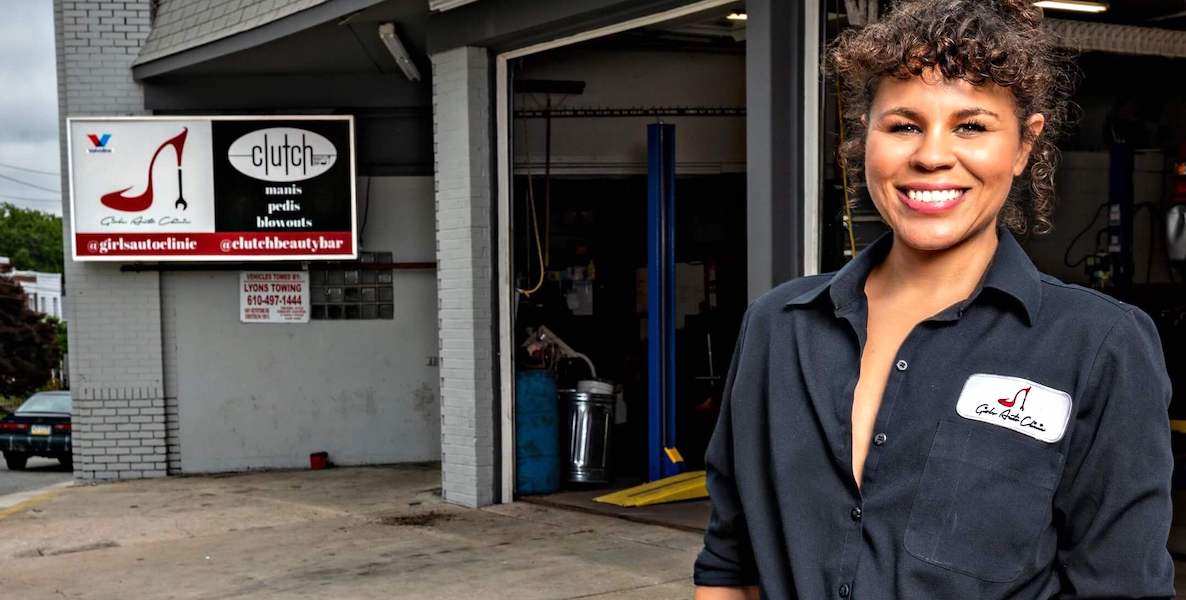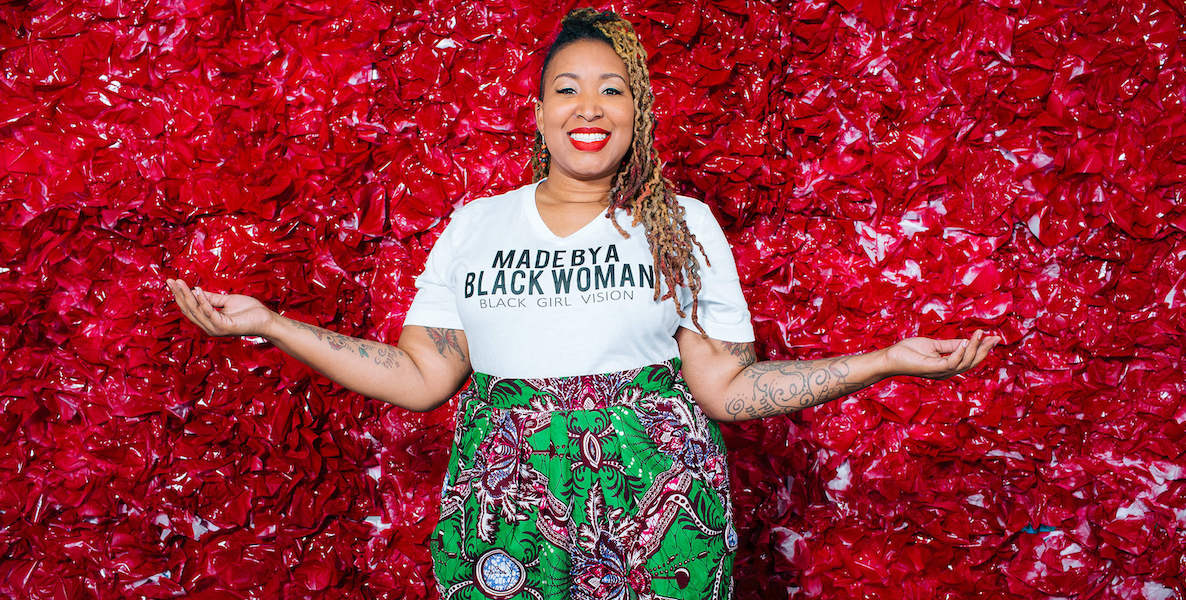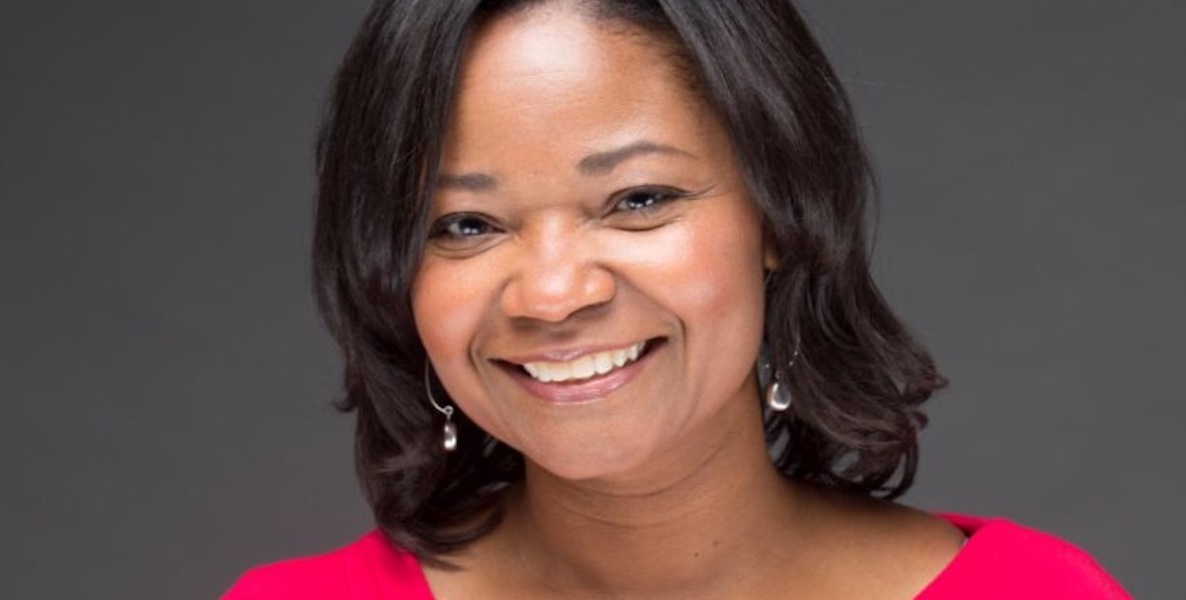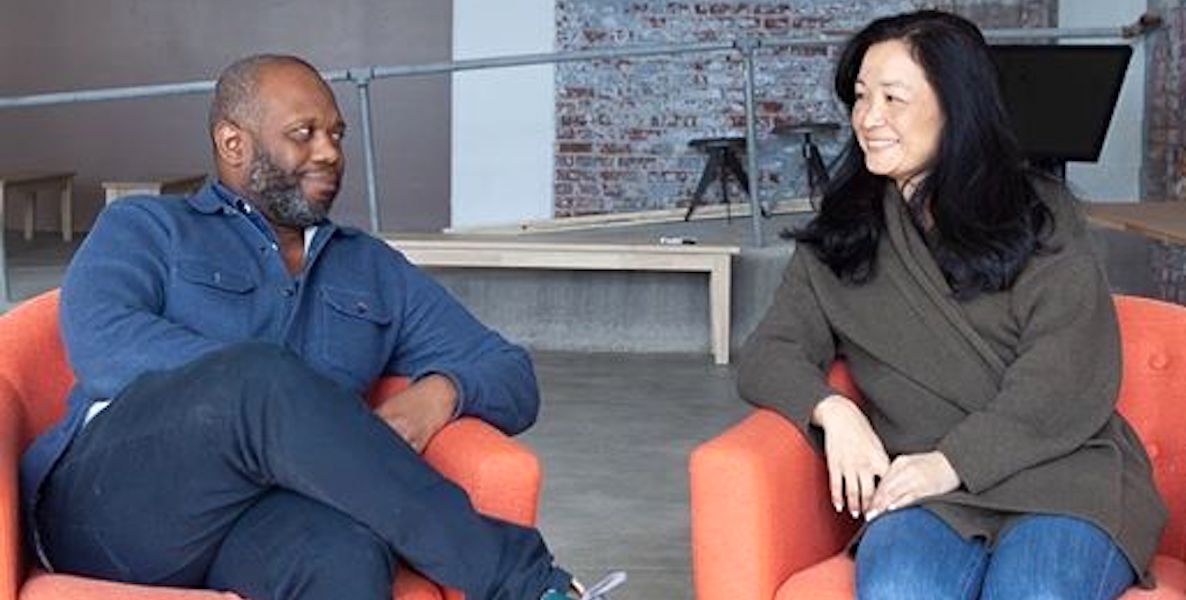![]() Mechanic and Girls Auto Clinic founder Patrice Banks (pictured above) knows what it’s like to be an outsider in the automotive industry.
Mechanic and Girls Auto Clinic founder Patrice Banks (pictured above) knows what it’s like to be an outsider in the automotive industry.
A self-described former “auto-airhead,” she had a successful first career as a materials engineer, for DuPont among others. But she knew nothing about cars, and remembers being intimidated by her own and by the men she had to take it to for repairs.
Later, when she decided she’d had enough of her car ignorance and went to school to become a mechanic herself, she faced men who would tell her she was too petite or too pretty for hands on work. The industry was a white boys’ club—and as a Black woman, she didn’t fit the mold.
“I struggled a lot when I first joined the industry because I wasn’t accepted. I was an outsider, I was a Black woman and I was very bold in what I wanted to do,” Banks says. “There just weren’t people that looked like me, and it was lonely.”
“We want to connect these women to job opportunities,” Banks says. “None of us girls thought about cars or were car enthusiasts. We joined the industry not really knowing what it had to offer.”
So she wasn’t surprised this summer when leaders in the auto industry, and other local mechanics, remained silent as the nation became swept up in Black Lives Matter protests. As Banks put out statements on Girls Auto Clinic’s Instagram calling for justice for George Floyd and Breonna Taylor, other shops remained silent.
They Want More Resources—And They Want Them Now
The auto industry is overwhelmingly white—90 percent of repair shop employees and 70 percent of dealership employees are white—and Banks felt that they were unwilling to acknowledge the privileges they’d garnered because of their race. “Their core values and what they believe in don’t match with mine,” Banks says. “We’re out here talking about Black Lives Matter and the companies that we work for may not have been.”
Industry leaders may have remained silent, but that didn’t mean conversations around race weren’t happening. In the wake of protests spurred by the police murder of George Floyd, Banks began texting some of the other women of color she’d met over the years at industry conferences and events. Their conversations kept circling back to the same points: they wanted a community for women of color in the industry; they wanted more resources to help them succeed; and they needed it now.
This month, they launched the Women of Color Automotive Network (WOCAN), a nonprofit that seeks to connect women of color within the industry with mentors, financial resources and other things they need to be successful.
They plan to host monthly webinars, regional meetups and offer mentorships and scholarship programs to support women of color looking to break into the industry. So far, they’re in Philly, Colorado, Atlanta and Los Angeles—the cities where the founders are based.
This isn’t Banks’ first run at starting an educational and connector group. Prior to and since founding Girls Auto Clinic in 2017, she ran monthly SheCanic workshops to help women learn about taking care of their cars. Now, she runs a repair shop that staffs its garage with female mechanics and views women as its primary clientele.
![]() She’s written a car care guide for women and has given speeches about the importance of bringing women into the auto industry and teaching them to care for their cars. Currently, the workshops are on hold due to Covid-19, but education is still an integral part of Banks’ mission.
She’s written a car care guide for women and has given speeches about the importance of bringing women into the auto industry and teaching them to care for their cars. Currently, the workshops are on hold due to Covid-19, but education is still an integral part of Banks’ mission.
Her three years working in the automotive industry have taught her that it can be a lucrative career opportunity for women of color. Most dealerships and repair shops don’t require employees to hold a four-year college degree, and classes in automotive technology are often cheaper than a Bachelor’s.
Despite these advantages, women of color aren’t encouraged to pursue jobs working with cars and are even discouraged from entering due to unfair treatment by mechanics.
A 2017 study found that women were quoted a higher price for car repairs than men and in a 2013 survey of car owners and lessees, 77 percent said mechanics are more likely to sell women unnecessary repairs.
“We are the CFOs of the household,” Banks says. “It just naturally makes sense to have more women that look like this working in this industry as a part of this work force.”
Currently, only six percent of jobs in the industry are held by women of color, according to data from WOCAN. Banks, a former engineer, only joined because she couldn’t find a women mechanic to take her car to for repairs.
Despite their lack of representation in the industry, women ARE responsible for around 45 percent of new car purchases each year and people of color make up over 35 percent, and many are looking for mechanics who look and sound like them.
“There’s some incredible opportunities for not just women, but women of color in the automotive industry and we want to share them,” Banks says.
Women Helping Women
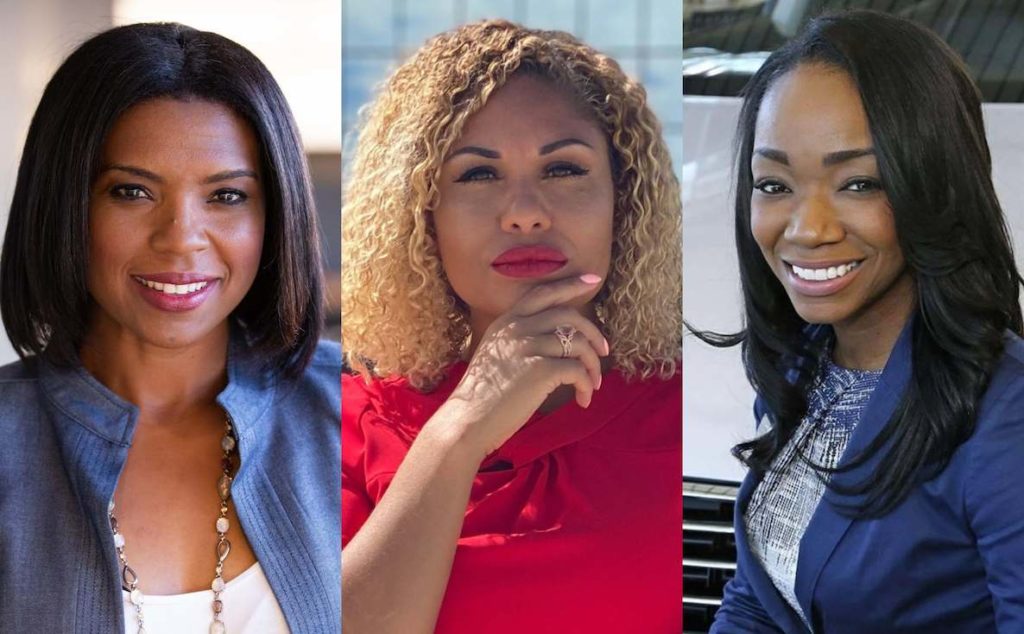
To help support women of color entering the industry, WOCAN is partnering with businesses and applying for grants so that they can provide scholarships for women who want to attend automotive technology school or startup funds for women interested in starting their own repair shops.
They’re currently in talks with a business that plans to provide them with $10,000 for their first scholarship.
![]() In addition to Banks, WOCAN’s founders include Amanda Gordon, founder and CEO of the independent car dealership GoJo Auto in Denver; Atlanta-based Erikka Wells, who has worked as a sales, marketing and finance manager for several different dealerships; and Kerri Wise, vice president of communications at TrueCar in Los Angeles.
In addition to Banks, WOCAN’s founders include Amanda Gordon, founder and CEO of the independent car dealership GoJo Auto in Denver; Atlanta-based Erikka Wells, who has worked as a sales, marketing and finance manager for several different dealerships; and Kerri Wise, vice president of communications at TrueCar in Los Angeles.
Together, they represent a wide swath of different career possibilities for women in the automotive industry and they hope that other women of color can learn from their experiences.
“We want to connect these women to job opportunities,” Banks says. “You don’t have to be an industry veteran or belong to it right now. None of us girls thought about cars or were car enthusiasts. We joined the industry not really knowing what it had to offer.”
Their disparate locations are part of the reason they wanted to create a virtual as well as in-person connector group. When Banks first joined the industry, she had trouble meeting other women of color locally. The first Black woman she was able to connect with was Wells, who reached out to her over email after hearing about Girls Auto Clinic and flew to Philly to meet her. Afterwards, she would occasionally meet other women of color at conferences or other industry events and would feel pulled to connect with them.
“We would immediately be attracted to each other,” Banks says. “There’s so few Black women in the automotive industry … When I found some of these Black women, I found that we formed a friendship. Eventually, we started texting each other and airing out our frustrations.”
What’s Next For Girls Auto Clinic
The work WOCAN is taking on gels nicely with Banks’ plans for Girls Auto Clinic as well. She plans to open a second location in 2021, which would create more opportunities for women and women of color to join the industry. Currently, she’s looking at several potential locations, including North Jersey and D.C.
She also has interest from a couple in Colorado who would like to invest in her business and turn their current repair shop into a Girls Auto Clinic. She estimates startup costs for a second shop could run anywhere from $250,000 to $500,000.
A 2017 study found that women were quoted a higher price for car repairs than men, and in a 2013 survey of car owners and lessees, 77 percent said mechanics are more likely to sell women unnecessary repairs.
While she’s received interest from several different investors, Banks wants to make sure she partners strategically to sustain the shop’s mission. She’s prepared to open a second shop on her own if a potential business partner doesn’t feel like a good fit. “I’m not a serial entrepreneur. I don’t want to start this and then sell it in a couple of years and start another business. This is my baby,” she says.
Even now that her shop has proven successful, she still receives pushback on some elements from potential investors, including the popular nail salon, Clutch Beauty Bar, that’s attached to her Upper Darby shop.
![]() “I get a lot of comments from men like, ‘This is why they don’t hire women.’ They want to change the way I do stuff. They want to drop the nail salon. They don’t think we should do this and I’m like, Listen, we’re not here for that. I’m here to empower women. I’m here to make a change,” Banks says.
“I get a lot of comments from men like, ‘This is why they don’t hire women.’ They want to change the way I do stuff. They want to drop the nail salon. They don’t think we should do this and I’m like, Listen, we’re not here for that. I’m here to empower women. I’m here to make a change,” Banks says.
Even though she still receives pushback for some of her ideas, Banks feels like the industry is becoming more aware of the need to employ more women and people of color. She’s talked with major dealerships about how they can attract and retain more women of color and she thinks they’re finally realizing the purchasing power they hold.
“We are the CFOs of the household,” Banks says. “It just naturally makes sense to have more women that look like this working in this industry as a part of this work force.”
She’s also seeing more women and women of color expressing their interest in cars and sharing it in virtual communities.
In 2011, Banks set on the path that lead her to start Girls Auto Clinic after she spent hours searching for a female mechanic in the Philadelphia area and found no results. Now, she can search #shecanic on Instagram and it turns up thousands of results.
“It’s not anywhere close to where the dudes are at, but we’re building momentum,” Banks says. “You can meet a ton of girls out there around the world who have this passion and they like cars and they really want to share it.”



